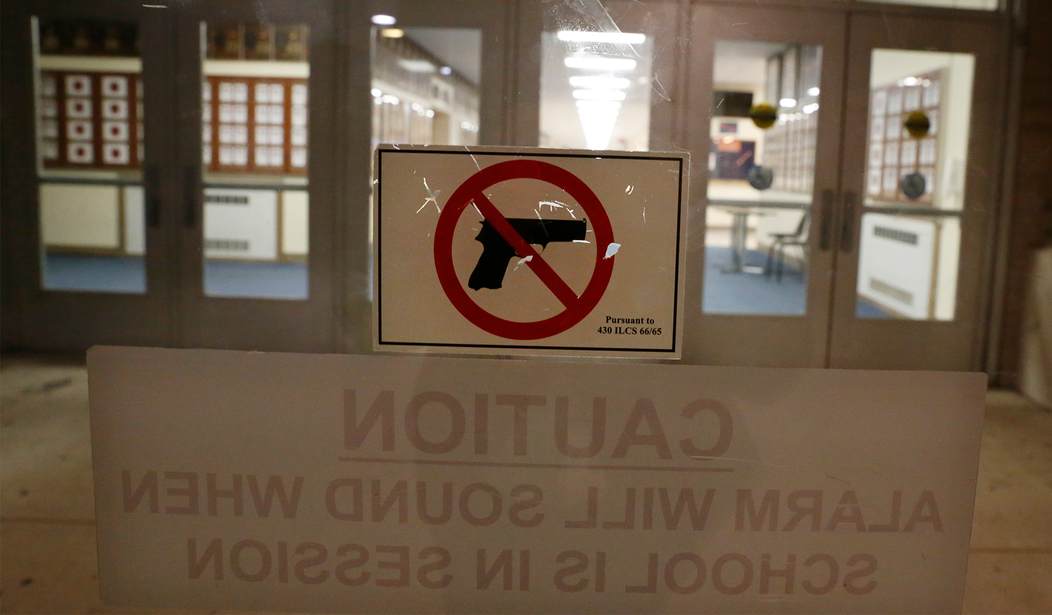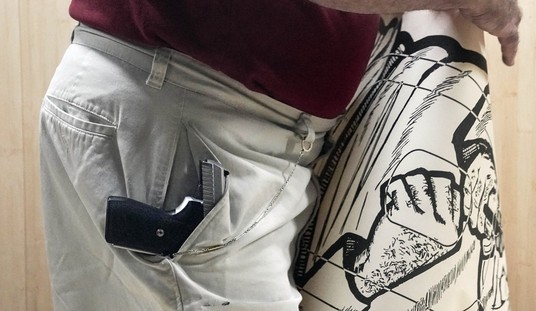Despite the fact that a federal judge has declared that many of New York’s post-Bruen gun laws are unconstitutional, they remain in effect because that same judge also decided that the plaintiffs who filed suit don’t yet have standing to sue. The legal fights over the new laws are still underway, however, and on Tuesday a new lawsuit taking on the state’s sweeping number of “sensitive places” where concealed carry is banned was filed by the Firearms Policy Coalition and the Second Amendment Foundation, along with two individual plaintiffs.
The case, known as Boron v. Bruen, asserts that the new restrictions approved just weeks after the Supreme Court’s decision striking down the state’s “may issue” laws was issued “replaced one unconstitutional licensing scheme with another, and worse, implemented expansive new criminal laws that ban carry of firearms in so-called “sensitive locations” and presumptively on most property in the state—even for those who lawfully acquire and possess a license under the State’s onerous new licensing scheme.”
Calling the move a de facto ban on concealed carry, the lawsuit argues that Gov. Kathy Hochul herself made it clear that the intent of the new laws was to inhibit or curtail the right to bear arms; an “act of defiance” from anti-gun lawmakers who refuse to treat the Second Amendment’s protections with the respect that must be shown to our civil rights.
New York’s carry regulations in designated “sensitive locations” go far beyond any constitutionally relevant historical justification, and “ordinary, law-abiding citizens,” like and including Plaintiffs, are again prevented from carrying handguns in public for self-defense in almost all corners of the State, except in what Governor Hochul said were, “probably some streets.” This makes a mockery of the Supreme Court’s holding in Bruen, which reaffirmed that personal security extends to more than just “those . . . who work in marbled halls, guarded constantly by a vigilant and dedicated police force,” to include ordinary, law-abiding Americans “outside the home”.
Moreover, New York’s designation of private property as a “restricted location[ ]” is an unprecedented designation that essentially deputizes all property owners in the State to effectuate a carry ban that the Supreme Court most recently invalidated in Bruen. The Second Amendment, however, cannot be so easily manipulated. Since the State’s expansive restrictions on carriage in public do not allow typical law-abiding citizens to carry a loaded and operable handgun outside their home in all sorts of places of everyday life, these restrictions deny them any meaningful right to bear arms.
That’s a pretty succinct description of how New York has flaunted the Supreme Court’s decision that explicitly states the Second Amendment protects a general right to carry a firearm for self-defense in public, and it gets to the heart of why the state’s post-Bruen restrictions on where concealed carry holders can lawfully bear arms should be struck down. There are no historical analogues to the type of sweeping gun-free zones established by New York Democrats, and the restrictions (along with the felony charges that come with violating the “sensitive places” statute) are a clear sign that lawmakers in Albany are trying to prevent the exercise of a constitutionally-protected right… and so far have been successful in doing so, as the lawsuit details when it describes the burden placed on plaintiffs like John Boron.
Plaintiff Boron is presently licensed under New York law to carry a concealed firearm. Boron desires to carry his firearm for self-defense purposes when going about his day-today life. Under the Carry Provisions, Boron will be prevented from doing so. In particular, Boron will be unable to carry for self-defense when taking his weekly walk with his dog to a local park near his house, as he typically does and would intend to continue to do so, but for the enactment and enforcement of S51001. The enactment and enforcement of S51001 forces Boron to either forego carrying while walking his dog or change the time he goes to the park when he perceives it to be safe. Further, the Carry Provisions will prevent Boron from riding public transportation while carrying for self-defense, as he would intend to do, but for the enactment and enforcement of S51001. He will be unable to visit downtown Buffalo, as he commonly does every several months to go out to dinner, by taking the NFTA Metro Rail and carry for self-defense, which is particularly problematic because of Boron’s concerns for his public safety when he gets off the train in Buffalo. Despite his Second Amendment rights, S51001’s designation of these spaces as “sensitive locations” disables him from exercising those rights.
Further, Boron will be unable to carry his firearm on his person throughout the State because of the State’s designation of private property, which is open to all members of the public, as “restricted locations.” Boron typically brings his firearm with him on private property open to the public, such as on early morning visits to the ATM, weekly visits to gas stations, and monthly visits to hardware stores, and he intended to continue to do so, but for the enactment and enforcement of S51001. S51001’s designation of private property, including private property which is open to the public, as a restricted location effectively prevents Boron from going about his daily life in the state of New York while lawfully carrying his firearm for purposes of selfdefense. For example, Boron is an avid motorcyclist, riding multiple times a week when weather permits. After S51001’s effective date, when riding in upstate New York, including predominantly rural areas, Boron will be unable to take any bathroom breaks, pick-up or buy food, or unable to get gas if he “possesses a firearm” and there is not “clear and conspicuous signage” indicating that the “carrying of firearms . . . is permitted.” Moreover, since S51001 bars even “entering” these locations, Boron will often need to stop carrying for self-defense before he can get physically close enough to see if any “clear and conspicuous signage” exists. If the motorcycle he is riding lacks a safe and secure depository for his firearm, he will be unable to stop at all to even check the signage. This effectively means Boron must leave his firearm at home. Boron is particularly concerned that if he encounters mechanical difficulties with his motorcycle, leaving his firearm at home will leave him defenseless while waiting multiple hours on the side of a road for a service vehicle or a public safety response. Alternatively, if Boron’s motorcycle were to have a safe and secure depository where it would be lawful to store a firearm, the process of disabling and storing the firearm would risk putting Boron in an uncomfortable situation with passersby observing him do so.
The net effect of these restrictions is to prevent law-abiding citizens like Boron from ever exercising their right to carry in the first place. I’m thrilled to see that New York’s “sensitive places” are the subject of this new lawsuit… I just hope it doesn’t take Boron or any other concealed carry holder getting arrested and charged with a felony before the courts find they have standing to sue.









Join the conversation as a VIP Member